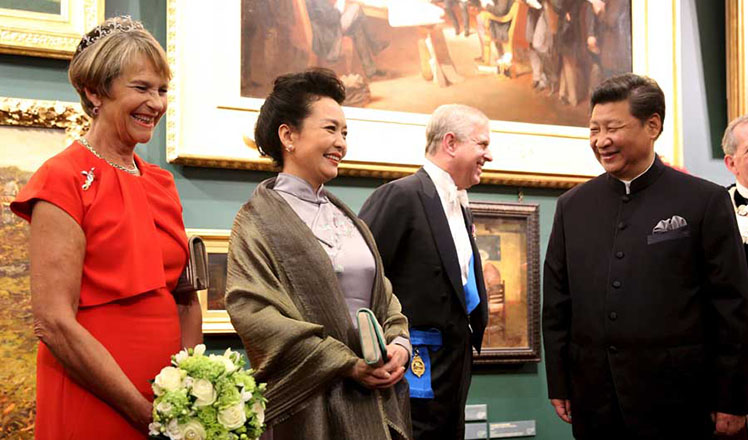Shanghai forms hub for smart manufacturing enterprises
Updated: 2015-10-24 02:26
By Yu Ran(China Daily USA)
|
||||||||
In line with the Made in China 2025 national strategy as well as the vision of becoming a global hub for technology and innovation, Shanghai government is aiming to transform its Lingang area into a global center for smart manufacturing by 2025.
To achieve this goal, officials on Oct 14 unveiled 24 measures and 10 policies aimed at improving Lingang's infrastructure in order to support the industry, as well as to provide preferential policies for companies to set up businesses in the area.
Kicking off the transformation process of Lingang is the introduction of two government projects, six public service platforms, three financial service platforms for smart manufacturing, and eight newly-launched manufacturing enterprises.
"Lingang is keen to focus on the development of smart manufacturing to upgrade research and design, production, management and servicing of enterprises, and to become a significant global manufacturing technology and service provider," said Chen Mingbo, deputy governor of Pudong district and party secretary of Lingang area.
Located in the southeastern suburbs of Shanghai, Lingang is already a manufacturing center for leading companies specializing in civil aviation, automobile, marine engineering equipment and electrical facilities. According to authorities, companies in industries including robot manufacturing and 3D printing will be encouraged to set up their businesses in this commercial zone.
The government will also launch various platforms, including a big data facility, in Lingang to offer enterprises support in terms of research, innovation, information and incubation needs. The total output of the smart manufacturing industry in Lingang is expected to exceed 100 billion yuan ($15.8 billion) by 2020.
"Companies in Lingang can expect to enjoy services such as public cloud and big data access. It can reduce the basic cost of companies and allow them to be more efficient," said Tang Wenkan, a senior administrative officer from Lingang area.
To attract more companies and talents to set up shop in Lingang, 5 billion yuan will be channeled into the development of smart manufacturing businesses within the following decade while local authorities will provide a subsidy of up to 50 million yuan and free rent to approved companies. Talents working in Lingang can also expect to enjoy lower rates for accommodation.
"We will upgrade the talent policy early next year to open up the recruitments and improve further settlements for high-end professionals in smart manufacturing industries to work and live in a more comfortable and convenient environment," said Chen.
In addition, Lingang's cooperation with countries such as Germany, the United States and Japan will create a global network whose resources can help smart manufacturing companies carry out innovative research. Multinational companies and overseas organizations will also be encouraged to set up research platforms, training centers and factories to lead the development of the industry.
"We believe smart manufacturing and industrial Internet will be the key breakthrough to allow Shanghai's advanced manufacturing industry to reform and develop," said Xu Ziying, deputy director of Shanghai Commission of Economy and Informatization.

 President Xi visits Man City football club
President Xi visits Man City football club
 British PM Cameron treats President Xi to beer, fish and chips in English pub
British PM Cameron treats President Xi to beer, fish and chips in English pub
 Xi hails role of Confucius institutes
Xi hails role of Confucius institutes
 First Lady visits London's prestigious Royal College of Music
First Lady visits London's prestigious Royal College of Music
 From Bond to Beckham: Highlights of Xi's speech at the Guildhall banquet
From Bond to Beckham: Highlights of Xi's speech at the Guildhall banquet
 Beloved panda was wartime ambassador warming hearts of people
Beloved panda was wartime ambassador warming hearts of people
 China and UK in the eyes of each other's painters
China and UK in the eyes of each other's painters
 President Xi, first lady Peng attend Guildhall banquet in London
President Xi, first lady Peng attend Guildhall banquet in London
Most Viewed
Editor's Picks

|

|

|

|

|

|
Today's Top News
Tu first Chinese to win Nobel Prize in Medicine
Huntsman says Sino-US relationship needs common goals
Xi pledges $2 billion to help developing countries
Young people from US look forward to Xi's state visit: Survey
US to accept more refugees than planned
Li calls on State-owned firms to tap more global markets
Apple's iOS App Store suffers first major attack
Japan enacts new security laws to overturn postwar pacifism
US Weekly

|

|







